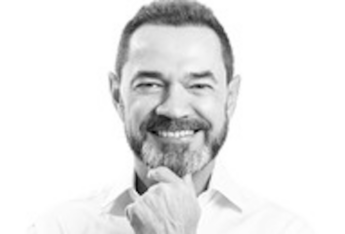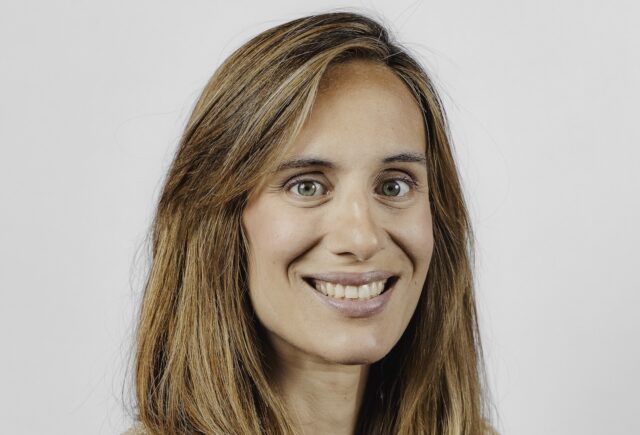Impact Investor speaks to Javier Armentia about CREAS, the impact investment firm he co-founded in Spain, and the outlook for impact investing in the country.

Spanish impact investor CREAS, acronym for Capital Riesgo en el Ámbito Social or Risk Capital in the Social Sphere, started its journey as a foundation in 2008 and recently launched its second impact fund, the €70m CREAS Impacto II. Impact Investor spoke to one of its co-founders, Javier Armentia about the motivations for launching the company, how it has evolved and its role in Spain’s burgeoning impact investment sector.

Armentia studied medicine as an undergraduate but decided to pursue a career in business. After completing an MBA at the IESE Business School in Barcelona, he joined pharmaceutical and medical technology firm Johnson & Johnson where he spent the next 20 years, latterly as general manager for Spain and Portugal. In 2012, at the height of his career at the company, he decided to leave to pursue a deep seated desire “to bring meaning” to his life.
“It sounds very cliché but one of the frustrations I had after years of working long hours, was the short-termism of corporations and the singular focus on profit. It became clear to me that we were wasting some of the world’s most talented individuals on turning a profit rather than trying to solve some of the world’s most pressing challenges,” says Armentia.
Armentia’s old friend and successful architect Luis Berruete was having similar thoughts after spending a year working in India on the building of hospitals and schools with the Vicente Ferrer Foundation, a Spanish NGO working to improve the lives of rural communities in Southern India.
“Luis and I decided we needed to try to change the mindset of investors, to persuade them that making a return on investment and doing the right thing were not mutually exclusive. You could do both at the same time.”
Launch
Whilst still in their respective careers, Armentia and Berruete established CREAS as a foundation and spent the next few years raising enough capital from friends and connections in and around their hometown of Zaragoza to launch their first pilot fund, the €1.3m CREAS Desarolla, in 2012.

“We started by funding pre-seed and seed projects,” says Armentia. “At that time, the investors we were speaking to about social entrepreneurship hadn’t even heard of the concept. It didn’t exist in Spain.”
Whilst they had not heard of impact investing, Armentia says the original investors played a pivotal role in helping CREAS to analyse and conduct due diligence on their early deal flow.
“We ignored advice telling us not to involve the investors and it turned out to be the right decision. Not only did they help us to analyse the companies in our pipeline but it also got them very excited about the opportunities for investment away from the traditional investments they were used to,” he says. “We planted a seed that investing in mission-driven companies was not just possible but also profitable.”
Funds and portfolio
The co-founders set up an advisory board, which included senior leaders from Spain’s business and investment community as well as experts in impact and sustainability, such as Agustín Vitórica (Gawa Capital), Lisa Hehenberger (Esade Center for Social Impact) and Salvador García Atance (Fundación Lealtad), and in 2018 the €30m CREAS Impacto I fund was launched.
“At the beginning, CREAS was an altruistic project for Luis and I but in time and with the strategic advice of our advisory board and encouragement from our investors, we started to think bigger. We hired a team of experienced professionals and from €1.3m, we soon went to €30 with our first fund and now we’re aiming to raise €70m with fund II,” he says.
CREAS has already raised €40m for fund II and used the fund’s launch to streamline its impact thesis, with the decision to focus on investments that; empower people through education and inclusive employment; provide care for the vulnerable, with a focus on mental health and care for the elderly; and help to accelerate the adoption of regenerative consumption and production models, with a focus on companies working in the circular economy and the agrifood industry.
“When we started out, it was enough to be counted among the pioneers of impact investing in Spain, but we soon realised that if we wanted to add meaningful value to our investments and have a greater impact on society, we also needed to have a greater focus,” explains Armentia.
“We chose education because it is perhaps the most important lever in the fight against inequality. In healthcare, we found that provisions for the elderly and mental health in particular, were not professionalised and in need of systemic change in order to meet growing demand and on questions of the environment, we found traditional areas such as the energy transition and mobility very overcrowded. Instead, we decided to turn our attention to opportunities in the circular and regenerative economy in line with rising consumer awareness of the world’s finite resources.”
Fund II only invests into early growth stage companies principally in Spain, but with the opportunity to invest across the rest of Europe. Its latest investments include Zen Educate, a UK company that has created a platform for teachers and teaching assistants to find jobs and connect with schools, and MiResi, an online platform helping Spanish families find quality care homes for their elderly relatives.
“In the past, certain areas of the Spanish economy and society offered few impact investment opportunities. That has also changed and we plan to continue to specialise, targeting underserved and underfunded areas,” adds Armentia.
Spain’s impact ecosystem
Armentia explains that CREAS has played an active role in the creation of industry associations such as SpainNAB, GSG Impact’s national partner in Spain, where, until recently, it held a board position. It has also helped to create impact committees within organisations such as SpainCAP, an association representing the venture capital and private equity sectors in Spain, and Spainsif, a nonprofit organisation promoting sustainable and responsible investing.
“Looking ahead, our focus will be on meeting the fundraising target for fund II whilst continuing to demonstrate to stakeholders across Spain that investing for impact can generate a financial return as well as add value to society,” says Armentia.
Armentia says that the company would also consider launching issue-specific funds, such as a mental health-focused fund to respond to critical and poorly addressed issues as well as to expand into different investment vehicles, which he says are more suited to certain types of mission-driven company investments, such as debt.
“Venture capital with its focus on generating multiples of growth, is not always the most optimised vehicle for mission-driven companies, some of which are more suited to a slower trajectory of development,” he says. “We need to start to think more from the point of view of the entrepreneur and their needs rather than just the needs of the investor. This requires innovation and it is something we’re thinking about how to address.”
Armentia says the company is also looking at opportunities to innovate into new areas such as culture or immigration, where no market currently exists.
He ends our conversation by warning against the rise in opportunistic funds that claim to be impact but are “misleading” the market.
“At CREAS, we started our journey a long time before the recent growth in impact investing and impact washing,” he says. “I am really proud of our team and what we have achieved together. We don’t go where everybody else goes and we hope our track record of 12 years demonstrates our ability to find and invest into companies that are genuinely finding solutions to real world challenges.”






